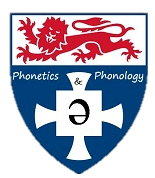-
News:
Accent Articulation Conference First Language Acquisition gamification Group focuses Job Laboratory Phonology Lecturer Linguistics Morphology Perception PhD Funding Phonetics Phonetics and Phonology Phonology Professor Project on Tyneside English Psycholinguistics R Research associate science open day Sociolinguistics Sociophonetics Speech Signal Analysis Speech signal processing statistics Workshop
Category Archives: Conferences
Sun, Phonetics, and Phonology in Spain: Our Team at PaPE 2025!
Members of our research group were delighted to participate in the 6th Phonetics and Phonology in Europe (PaPE) conference, held from 25–27 June 2025 in in the University of the Balearic Islands, Mallorca, Spain, Spain. PaPE is designed as an … Continue reading
A Resounding Success: Our Journey at ICPHS 2023
From August 7th to 11th, our research group embarked on an illuminating expedition to the 20th International Congress of the Phonetic Sciences (ICPHS) 2023. As one of the most significant congresses in the field of phonetics, the ICPHS is a … Continue reading
ICPhS 2023 Attendance
We are pleased to announce that the research of seven of our group members has been accepted for presentation at the International Congress of Phonetic Sciences (ICPhS) 2023 in Prague. This is a great achievement for our research team and … Continue reading
Posted in Conferences, Group Focuses
Leave a comment
Three-minute thesis final
Date: 16th June, 16:00 – 18:00 Location: Baddiley Clark Seminar RoomBook: https://workshops.ncl.ac.uk/view/book/modal/50275/ Drinks reception and canapés from 16:00 Presentations will begin at 17:00 The finals of the 3-minute thesis are taking place on the 16th of June. One of our members, Carol-Ann McConnellogue, has … Continue reading
Posted in Conferences, Uncategorised
Tagged Conference, Sociolinguistics, Sociophonetics
Leave a comment
Melissa Baese-Berk’s Talk
Date: 06/12/2021 Prof. Melissa and her colleagues and students are constantly productive in the research of speech processing as well as accent perception and adaptation. In her talk, she walked us through their new work on the adaptation to unfamiliar … Continue reading
19th International Congress of Phonetic Sciences – Caitlin Halfacre
Post originally appeared on the PhilSoc Blog In August 2019, I was supported by a PhilSoc travel bursary to attend the 19th International Congress of Phonetic Sciences, to present a poster. The conference was in Melbourne, hosted by The Australasian … Continue reading
Phonetics and Phonology on tour… #BAAP2018
On 12-14th April 2018 a number of us from the Phonetics and Phonology Research Group went to the BAAP 2018 Colloquium at the University of Kent. We had 5 posters (Dan, Wael, Hajar, Hana, Nief) and 3 talks (Jalal & … Continue reading
Posted in Conferences
Tagged Conference, Laboratory Phonology, Phonetics, Phonology, Sociolinguistics
Leave a comment

